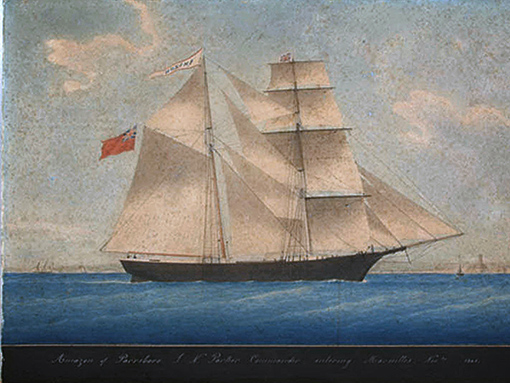Gary Fincke

1
At two, your son loves his car seat. Like your dog, he scrambles up to watch anything fly. Each time you shift lanes, reeling in a truck, he repeats, “go” and “fast,” chanting a chorus of his love for speed.
2
This time, as you pass, a moment within the trucker’s blind spot or his carelessness, the semi pulls left, and you punch the brakes as hard as panic demands, locking your blue fastback in a four-wheel drift up and over the shallow median into the two oncoming lanes of the familiar freeway, and nothing follows but wheel grip and brake slap until you stick, face-forward, to the opposite shoulder, poised like the highway patrol.
3
From his car seat, your son breathes your silence. Three cars slow, a small truck dawdles, yet you are anonymous, father and son sharing the news of chance and the absentmindedness of death.
4
You don’t thank God for perfectly spacing the high-speed traffic. You wait for a clear stretch across all four lanes and hump over the median to finish your trip, accepting an exit where that truck idles at a stoplight, the driver walking past four cars to lean into your open window, beginning penance with “I’ll bet you’re sitting in it.”
5
The truth? You say “No” so calmly and so softly, it sounds something like appreciation, the light turning green while that trucker holds his handshake, the two of you ignoring the horns of that lengthening line of cars, the light blinking yellow, then red, your son, at green, reminding you to go.
5
Later, your neighbor says, “Tyman Place,” expecting you to smile. “The Living End,” he adds, suddenly in love with passing along streets with opportune names. Clouds cross the lifeline of the sky’s palm. Lost control sprouts on billboards along every four-lane highway, PAC-bought posters for candidates you despise.
6
When to pass a truck becomes a formal question. Likewise, how. You love their uphill crawls, but for miles, sometimes, there are curves and downhill slopes that postpone the awful seconds of side-by-side while you hear the talk radio of problematic odds yammer from inside each shadowed cab.
7
Your son seems unchanged. He grows into his new outfit of sentences while impermanence keeps its secret.
8
One evening two deer dash across that highway as you brake and veer. In the mirror, you watch them reach the opposite shoulder as if, in some invisible spectrum, a traffic light has changed.
9
The following day, marking the moment of your miracle, you park where you skidded, stand and prepare to non-stop cross. Slung over its back, the past open-carries its blind spot. Terrified, you become a stuttered psalm of patience.
Seven minutes, it takes, for even a sprinter’s space to open. You nearly turn an ankle on the median. Gravel coughs under your shoes when you brake on the far shoulder, blinking against the grit blown up by the first oncoming truck. Alone beside the traffic that will outlive you, you hear each car recite a eulogy that closes with an anecdote of absence. Four lanes distant, your car appears to be abandoned, as if it will be soon stripped by opportunistic thieves.
Gary Fincke’s Latest collection is The Sorrows (Stephen F. Austin, 2020). His story “The Corridors of Longing” appears in Best Small Fictions 2020. An essay, “After the Three-Moon Era,” appears in Best American Essays 2020. He is co-editor of the anthology series Best Microfiction.


